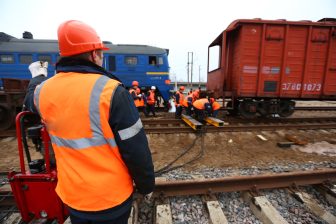
European Shippers Council calls for transitional period Brexit to avoid ‘cliff-edge scenario’
The European Shippers Council has called for a transitional period towards the Brexit of at least until December 2020. This is needed to allow governments as well as companies to finalise their preparations for the withdrawal of the UK from the EU. A no-deal scenario, which is still very possible, would lead to a cliff-edge scenario, the shippers representative body states.
“If the present Brexit withdrawal agreement does not pass the vote in the House of Commons in mid-January, a cliff-edge scenario will be the most likely one. In this case, producers and traders give no guarantee that the goods will reach their clients in time and in a good condition”, the lobby organisation said.
Where are we now?
What happens on 21 January is extremely important. On this day we will know for sure whether a hard Brexit will take place. This possibiity is still on the table, as the deal approved by the British Cabinet has not yet been supported by the government.
If this is not the case, a new referendum may be held, a new agreement could be concluded, or the transition period could be extended. But, the hard Brexit could also become a fact, explained Roy van Eijsden, director of WSP, a leading engineering firm earlier.
Hard Brexit
The hard Brexit is the most feared option. Although some may argue for it, the consequences are great, In case of a hard Brexit, the transition period will be cancelled. This transition period only applies when an agreement is adopted. Thus, in case of a hard Brexit, all customs formalities applicable to a third country would enter into force from 29 March. This has far-reaching consequences.
“Until now there is no clear picture on how all parties involved will have to deal with the situation after the 29th March 2019”, the European Shippers Council noted. “If the present withdrawal agreement does not pass the vote, a cliff-edge scenario will be the most likely one. Preparation after this date will be nerve-breaking.”
Unacceptable situation
Members of the European Shippers’ Council in their General Assemble last week stated that this is an unacceptable situation. As producers and traders, they foresee a major impact on the supply chain between the 27 member states and the United Kingdom.
“Shippers can not guarantee the delivery of goods to clients in time and in a good condition in case of a cliff-edge scenario. Such a scenario will impact the welfare of the inhabitants of the UK and EU 27 heavily. For instance, medicines and foodstuff are exchanged between these two European regions in large quantities.”
Disturbances inevitable
“Although many companies have already invested a lot in preventing chaos, the preparation made so far can never completely prevent big disturbances in trade. The capacity of warehouses in the UK has already been used completely and it is nearly impossible to rent additional space in warehouses for emergency stocks”, the lobby organisation continued.
“At the same time providers of logistics services and automation are also completely booked for the period around Brexit. The only solution that shippers see is an orderly move into a transitional period allowing governments as well as companies to finalise their preparation at least until December 2020.”




